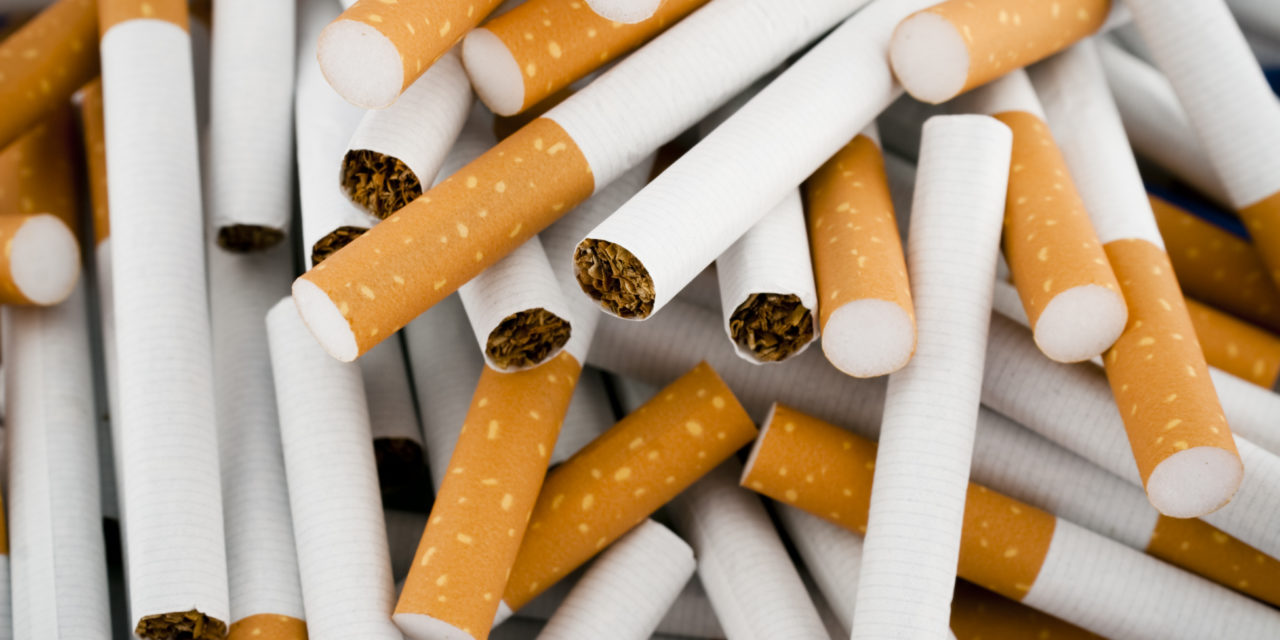While the health repercussions of smoking are well-known, the negative impact it has on this planet is often not talked about.
According to a 2018 study, tobacco production contributes to climate change with emissions that are equivalent to 84 million tons of carbon dioxide. This is equal to the emissions of Peru or twice that of Wales.
The co-author of that study, professor Nick Voulvous of the Centre for Environmental Policy at Imperial College London, in a statement said, “The environmental impacts of cigarette smoking, from cradle to grave, add significant pressures to the planet’s increasingly scarce resources and fragile ecosystems. Tobacco reduces our quality of life as it competes for resources with commodities valuable to livelihoods and development across the world.”
Tobacco production not only impacts emissions, but results in deforestation, water pollution, and soil depletion, the study said.
According to the World Health Organization (WHO), deforestation for tobacco growing has many serious environmental consequences – including loss of biodiversity, soil erosion and degradation, water pollution and increases in atmospheric carbon dioxide.
The report also calculated the environmental impact of a single smoker over their lifetime: a person smoking a pack of 20 cigarettes per day for 50 years is responsible for 1.4 million litres of water depletion.
The impact on the developing world
There is also an ethical
consideration associated with using the finite resources of water, land,
pesticides, and labour, which could be used more efficiently for food
production in the cigarette industry. In comparison to other crops,
tobacco requires more inputs and produces much lower yields. One example given
by the study is that one hectare of land in Zimbabwe has the potential to
produce nineteen times more potatoes than the tobacco which is currently
cultivated.
Almost 90% of global tobacco production takes place in developing countries.
Nine of the top ten tobacco-producing companies are developing, and four are
low-income-food-deficit countries (LIFDCs). These countries include India,
Zimbabwe, Pakistan, and Malawi. However, developed countries consume the majority
of these cigarettes.
But what
about the butts?
Though plastic straws have dominated conversations for those looking to cut down on pollutants,
cigarette butts are the most pervasive human-made contaminant.
The BBC reports that
a study says an estimated 4.5 trillion butts are littered globally each year.
Though it’s difficult to determine the number of discarded cigarettes,
estimates come from the 5.6 trillion cigarettes that are manufactured worldwide
each year, most of which are “dumped irresponsibly,” according to NBC
News.
The common ingredient in filters that spells danger for the environment comes in the form of cellulose acetate, a kind of plastic that takes at least a decade to decompose and can harm nearby plant growth, the study said.
Does this change anything for smokers?
In the UK, the demographic most concerned with climate change is 18-34-year old. The same demographic is also one that smokes the most cigarettes.
When Truly Belong asked young smokers whether they’d be less inclined to smoke if they knew what the effects of cigarettes on the environment were, many said they’d be concerned, but would continue to smoke.
“Its alarming,” said Zak, an engineering student from France who has been smoking for 7 years. “I didn’t know about all of this.”
“I would not stop smoking but I would think more before throwing the cigarette butt on the ground,” he said.
Aisha, 24, also expressed similar views. “If the information about cigarette production was on the pack or I knew more about the environmental impact, I’d consider [not smoking cigarettes]. It would make me feel more guilty about smoking,” she said.
She too said it would not make her change her smoking habits.
- Travellers are Rethinking Flying as Flight Shaming Takes Off - 1st March 2021
- Oxford-Backed Project Connects Partition Survivors to Their Ancestral Homes - 22nd February 2021
- Helping Your Own: A Young Aslyum Seeker Explains the Importance of Volunteering in the COVID Era - 7th September 2020






